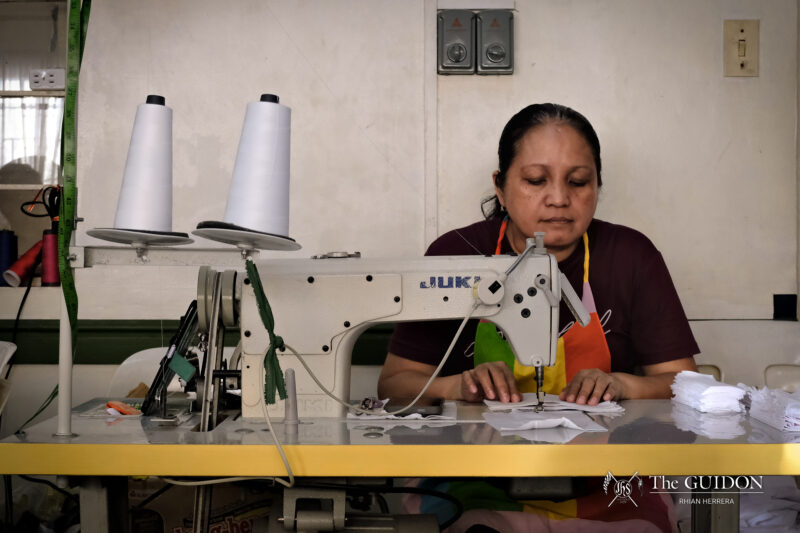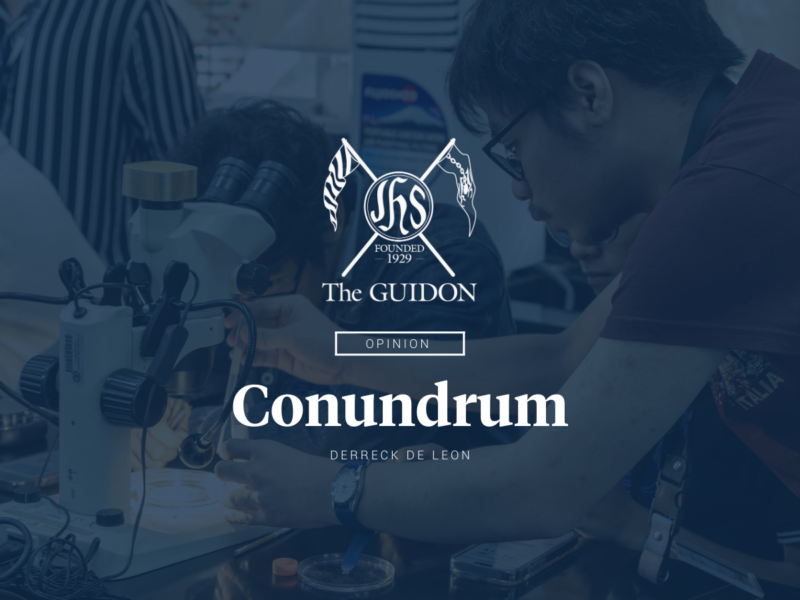IMPROVED POLITICAL involvement, creative policymaking, and improved cultural participation were on the agenda as various representatives of different organizations and courses attended the School of Social Sciences (SOSS) Planning Conference, held on February 6.
SOSS Sanggunian officers convened with the various representatives in order to discuss possible plans of actions that the SOSS Department can pursue as well as potential collaborations participating organizations can make in order to address the concerns raised.
The conference was led by SOSS Representative Christian Dy, together with Department of Research and Statistics Chairperson Bernice Violago.
Dy laid out the three main ideas the conference aimed to tackle in its group discussions and sessions. These were namely the continuous investing in Ateneans, building on the readiness to govern and improving on the openness for business.
“These will be the theme for all the projects SOSS Sanggunian will be following in the remaining months – better engagement with organizations, help for emerging organizations, changes in the subsidy system, aiding scholars in SOSS, and partnerships outside the Ateneo,” he said.
Promoting cultural involvement
Baybayin Representative Jayvy Gamboa discussed the thrust for the Baybayin Cultural Convention his organization will be pursuing in order to better promote Filipino Language and Culture amongst Ateneans.
“We must remember that before we are a Jesuit or Atenean institution, we are first and foremost Filipinos,” he said.
Bayabayin is a newly accredited organization that allows students “to explore the discourse of Filipino culture.”
Gamboa also reiterated the necessity of bringing cultural immersion and participation into a more engaging level to better instill Filipino culture within individuals.
Meanwhile, Hinomoto Representative Elle De Pedro raised concerns regarding the need for better support for their organization in promoting Japanese Cultural Studies inside the Ateneo.
Hinomoto is currently an unaccredited organization in the Ateneo that caters to individuals who wish to participate in the “cross-cultural understanding of Japan’s mark on the global community.”
According to De Pedro, because of the Office of Student Activities’ (OSA) restructuring, “it has been harder to get reservations and help in order to support the different activities of unaccredited organizations,” such as Hinomoto.
Tackling the current state of engagement for indigenous people in the Ateneo, Coalition of Ateneans for Indigenous Peoples (CAIP) Chairperson Dane Ancheta and CAIP Representative Edward Segismundo were present to voice out the need to reinforce the rights of CAIP as a branch of the Sanggunian.
Segismundo also brought up that it has been also difficult for the organization to handle matters with OSA.
“OSA [perceives] CAIP as an unaccredited organization when will in fact, it is a branch of the Sanggunian,” he explained.
Increased political engagement
Bagumbayani Initiative Represenative Lyonel Tangangco discussed the need in promoting Civil Service amongst the student body.
According to Tangangco, he wishes to partner with the Sanggunian in order to engage students more into participating in the government by removing various misconceptions through programs and campaigns within the Ateneo.
Additionally, LAHi Representative Briel Lising brought up the concern on the lack of avenues that will engage high school students into governance and SOSS-related courses.
“There is no direct avenue that provides high school students the opportunity to be more engaged with government and politics. Most of [the programs] are offered in college when students have already chosen [other] courses,” she said.
Furthermore, both Lising and Tangangco discussed the lack of SOSS-related Careers being offered during Career Week.
“The choices in [the] career fair are limited, especially for SOSS majors who may want to pursue other paths related to their course,” Lising explained.







